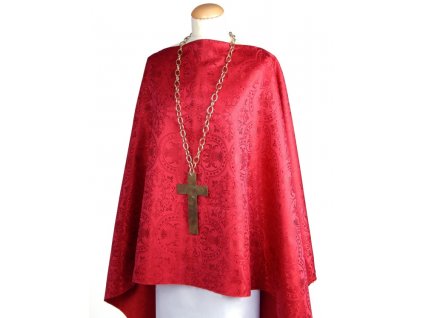Historical brocade 160 50749 Thistle ivory
R5228/r14 ivory warp - ivory/lila
| Category: | Brocades |
|---|---|
| EAN: | 8596197019403 |
| Color: | lila |
| Warp color: | ivory |
| Historical period: | 14th century, 15th century, 16th century, 17th century, 18th century, Celts, Renaissance, Baroque, Classicism |
| Material composition: | cotton/viscose |
| Motive/pattern: | floral, thistle |
| Localization: | Ireland |
| Producer: | HEDVA ÈESKÝ BROKÁT |
| weight: | 234 g/m2 |
| width: | 160 cm |
| Material composition: | 55% cotton/45% viscose |
The thistle is a symbol of Scotland and its people. Although there is a compelling legend about why it became the national flower of the Scots, the true reason remains unknown. Allegedly, a Norseman stepped on a thistle in 1263, revealing a Norwegian ambush and leading to the Scots' decisive victory at the Battle of Largs. The thistle has been used as a national symbol since at least the 15th century, appearing on silver coins during the reign of King James III in 1470.
Brocade was a historical term typically used to describe a fabric, usually silk, with a distinct jacquard pattern. Patterns were woven with threads containing expensive metallic fibers, such as silver or gold. However, the term "brocade" later began to be used for any fabric with a rich pattern. The technique for producing brocades originated in the Middle East. All our fabrics are high quality product. We manufacture all our brocades in our company HEDVA ČESKÝ BROKÁT s.r.o factory in Rýmařov, Czech Republic. We ship all over the world. We have our own design studio, so we are able to design brocades according to your ideas.
Care symbol:
![]()
Be the first who will post an article to this item!
Be the first who will post an article to this item!



























